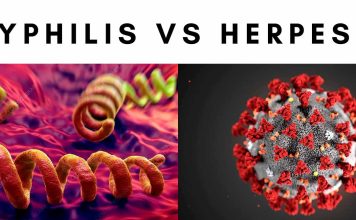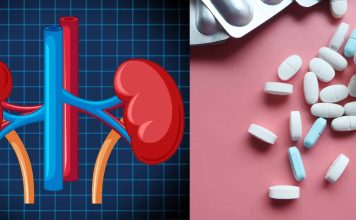Table of Contents
Dehydration Back Pain
Dehydration back pain sounds rare but it’s not that rare. 70-80% of our body is filled with water. Our body needs a minimum amount of fluid/water to perform and maintain all the functions of the body properly. If the water level of the body decreases we call it dehydration. And when that dehydration causes back pain we call it dehydration back pain.
Before we know why dehydration causes back pain, we have to understand dehydration properly.
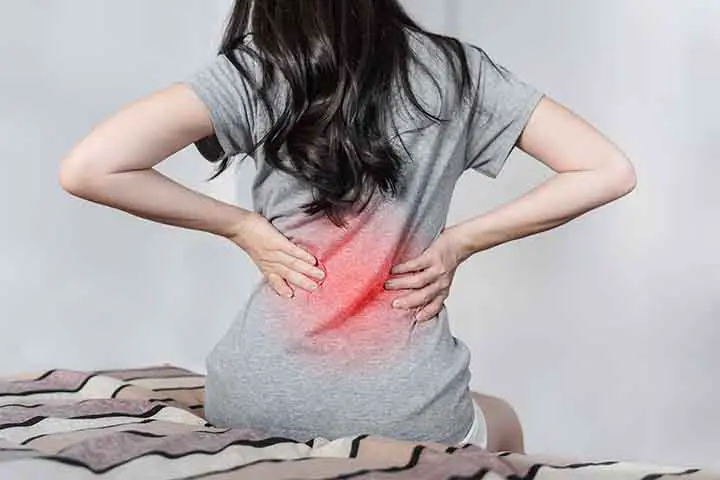
Dehydration
Dehydration is a condition caused by loss of water from the body excess than the expected volume. It occurs when your water output is more than the water input.
Our thirst mechanism signals us when we need to raise our fluid intake, and our advanced water monitoring system maintains our water levels stable.
While we lose water during the day by breathing, sweating, urinating, and defecating, we can replenish it by drinking fluids. If dehydration occurs, the body may also transport water to places where it is most required.
Symptoms of Dehydration
Mild dehydration(body loss <10% of body water)
- Dry mouth and tongue
- Lethargy
- Weakness & fatigue
- Dizziness
- Headache
- Thirst
- Sometimes crack lips

Severe dehydration(body loss <10-15% of body water)
- Sunken eyes
- Absent of tears
- No sweating
- Cold body
- Dry skin
- Hypotension
- Faster heartbeat
- Fever
- Delirium
- Unconsciousness may occur
Causes of Dehydration
The basic mechanism of dehydration is a loss of too much water or not taking enough water or both.
Certain disease and conditions can trigger dehydration or cause dehydration, these disease and conditions include;
- Diarrhea: Dehydration and associated deaths are most often caused by diarrhea. The large intestine retains water from food particles, but diarrhea avoids this. Dehydration occurs when the body excretes far too much fluid.
- Vomiting: Vomiting makes it more difficult to absorb water.
- Excessive sweating: A considerable amount of water is released by the body’s cooling process. Sweating can be exacerbated by hot and humid conditions, as well as intense physical activity. Similarly, a fever may cause excessive sweating and dehydration, particularly if the patient is also experiencing diarrhea and vomiting.
- Diabetes: Diabetes increases urination and may lead to dehydration if enough fluid intake is not ensured.
- Frequent urination: It can cause by diabetes and also diuretics such as; alcohol, caffeine tea.
Complications of Dehydration
- Low blood volume: Dehydration decreases the amount of fluid in the blood and decreases the blood volume. As the blood transport oxygen to our tissues along with food and nutrients it can be life-threatening.
- Hypotension: As the amount of blood decreases subsequently the blood pressure also decreases.
- Seizure: It can occur due to imbalanced electrolytes.
- Kidney problems may arise such as; Stone in the Kidney, Renal parenchymal disease, Urinary tract infections, etc.
- Heat Injury: Dehydration can lead to heatstroke.
Read Anterolisthesis
Read Rhizotomy Procedure for Back Pain
Mechanism of Dehydration Back Pain
There are small discs in your spine between each vertebra. Those discs are nearly 75% fluid and packed with a jelly-like material. Both the inner and outer ring (also known as the nucleus pulposus) is mostly totally composed of fluid, to the point that you may be a half-inch shorter by the end of the day than you were when you woke up. Because water is gradually extracted from your spinal discs during the day as these keep supporting the weight of the body throughout the day. When you sleep, your discs rehydrate, allowing you to wake up at full height. Drink plenty of water and get up to stretch your discs during the day to keep them hydrated.
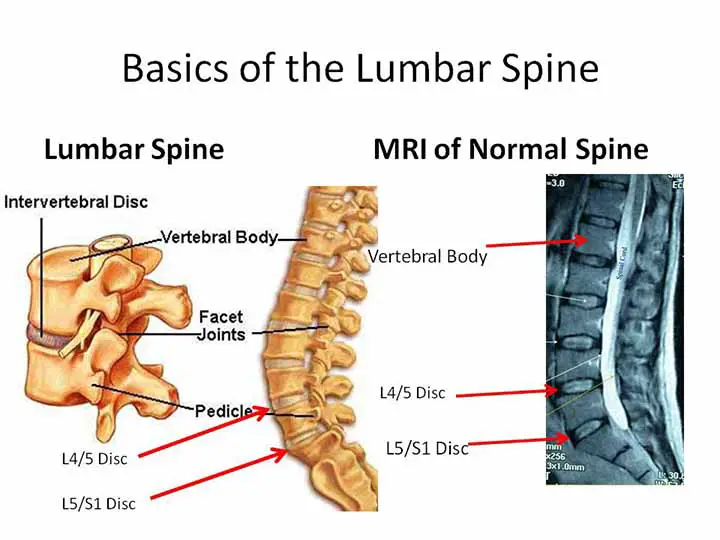
If your spinal discs aren’t enough hydrated, they won’t be able to protect and sustain your spine as effectively as they can. These jelly-like discs are located between each pair of vertebrae in the spine and absorb most of the shock from everyday movements while still protecting the spine. If they are unable to perform their duties properly, additional stress is placed on the spine, which may result in painful swelling and even bulging discs.
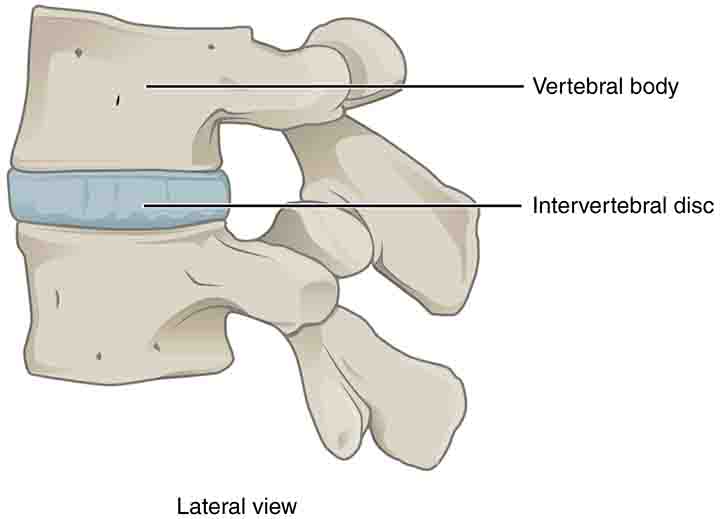
Complications of back pain caused by dehydration
- Bleeding and blood clot
- Infection
- Paralysis
- Restricted mobility
- Lifetime back pain
- Spinal cord injury
- Pressure sores
Read Hunger and Thurst Headache.
Diagnosis of dehydration along with Dehydration associated back pain
- Dehydration can be diagnosed by a doctor using both physical and mental examinations. Dehydration is commonly diagnosed when a patient exhibits symptoms such as restlessness, low blood pressure, rapid heartbeat, fever, lack of sweat, and inelastic skin.
- Blood tests are often used to check sodium, potassium, and other electrolyte levels as well as kidney function. Electrolytes are chemicals that help the body control hydration and are essential for nerve and muscle function. A urinalysis will give you a lot of details to help you figure out whether you’re dehydrated or not. The urine of a dehydrated individual may be darker or yellowish and much more concentrated, containing a certain amount of ketone bodies.
- To check the condition of the vertebrae and vertebral column doctor may suggest an x-ray.
Read Drowning is painful.
Treatment of back pain due to dehydration
Dehydrating is treated by providing enough water along with salt and electrolytes. When there is some sign of dehydration(mild), it can be treated by providing oral saline. When there is severe dehydration then the patient needs to be hospitalized and treated with iv infusion with Hartman solution or a specific dehydration correcting solution.
Dehydration may be caused by underlying medical conditions that should be managed with the necessary medication. This may include anti-diarrhea, anti-emetics (to avoid vomiting), and anti-fever medications.
If the back pain is severe and the vertebral discs are much thinner than regular then the doctor may prescribe you some painkillers.
According to the severity of the condition doctor, may suggest you a surgical procedure in which they push artificial fluid into the vertebral discs to make it lubricated and normal.
Read Drysol
Prevention of Dehydration back pain
Prevention of dehydration is the most effective method of avoiding dehydration back pain. Most people should be able to avoid dehydration by drinking plenty of water and eating high-water-content foods such as; fruits, vegetables, etc.

People should try to avoid exercising in extreme heat or during the hottest part of the day, and anyone exercising should make rehydrating fluids a part of the exercise.
Since the elderly and the very young(children) are the people that are most likely to become dehydrated, careful attention should be paid to ensuring that they get enough fluids. Make sure everyone drinks much more water than their daily water output.
Last Updated on February 23, 2022 by Learn From Doctor Team


